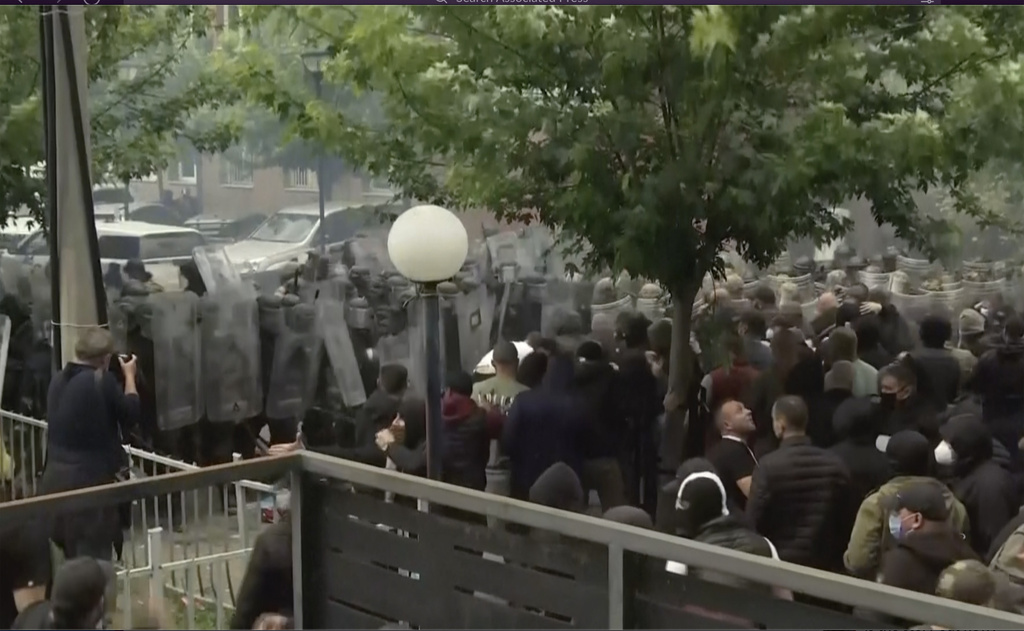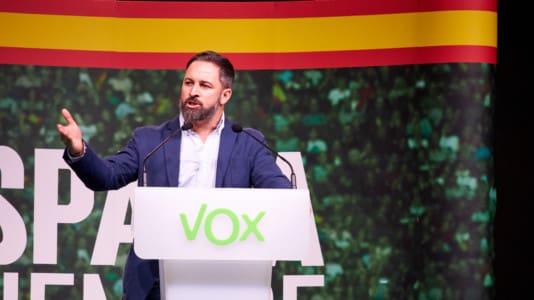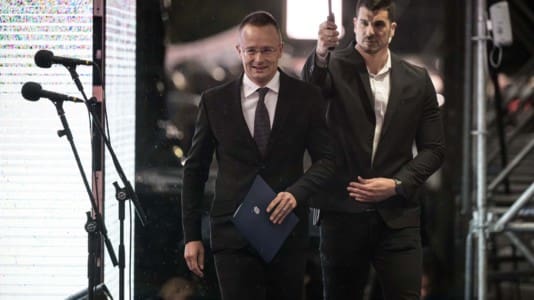A total of 25 peacekeeping troops from NATO’s Kosovo contingent were injured on Monday, along with over 50 Serbian protesters, when their Italian commanders deployed NATO troops to quell an ethnic conflict between Serbs and Albanians in Kosovo, reports Hungarian daily Magyar Hírlap.
Kosovar Serbs are demanding that the Kosovo government annul the April mayoral elections and allow Serbs to continue to run Kosovo’s institutions. However, despite calls from several foreign diplomats for the situation to be resolved late last week, Prime Minister of Kosovo Albin Kurti wrote on social media on Sunday that the elected mayors would take into account the concerns of all citizens.
“While countering the most active fringes of the crowd, several soldiers of the Italian and Hungarian KFOR contingent were the subject of unprovoked attacks and sustained trauma wounds with fractures and burns due to the explosion of incendiary devices,” NATO’s KFOR said in a statement.
There are disputes about how the clashes began, with one video purportedly showing the Serbs sitting in protest when the police began to try to remove them.
There are also reports that a number of Serbs were seriously injured, including one potentially life-threatening case.
Serbian President Aleksandar Vučić said: “We will not allow pogroms against Serbian people, there are 50-plus injured and three seriously.”
The protests by Serbs began on Friday when the newly elected ethnic Albanian mayors of Zvecan, Leposavic and Zubin Potok tried to seize their offices. The local Serbs refused to let the new mayors into the municipal buildings because they disagree with the idea that municipalities populated mainly by Serbs would be run by Albanians who were not elected by them.
On April 23, early mayoral elections were held in four municipalities in northern Kosovo because the leaders of those municipalities resigned in November over a car license plate dispute between Serbia and Kosovo. The majority of Serbs boycotted the early elections, resulting in a turnout of 3.47 percent; per the votes cast, the municipalities will now be led by Albanian mayors. Neither the local Serbs nor Belgrade find it acceptable that such a low turnout and the boycott of the elections by the Serbs are described as legitimate by Pristina and the international community.
Kosovo declared its independence from Serbia in 2008, but Belgrade has refused to recognize it and continues to consider the predominantly Albanian-populated territory as its own southern province.
On Monday, KFOR said it had increased its presence in Serb-inhabited municipalities in northern Kosovo to ensure a safe environment and freedom of movement for all communities in Kosovo. It also called on both sides to refrain from activities that could further aggravate the situation.






